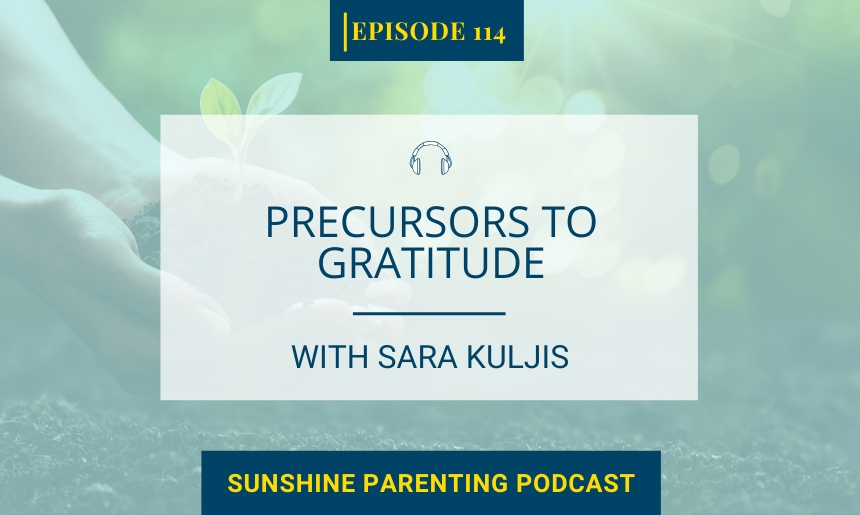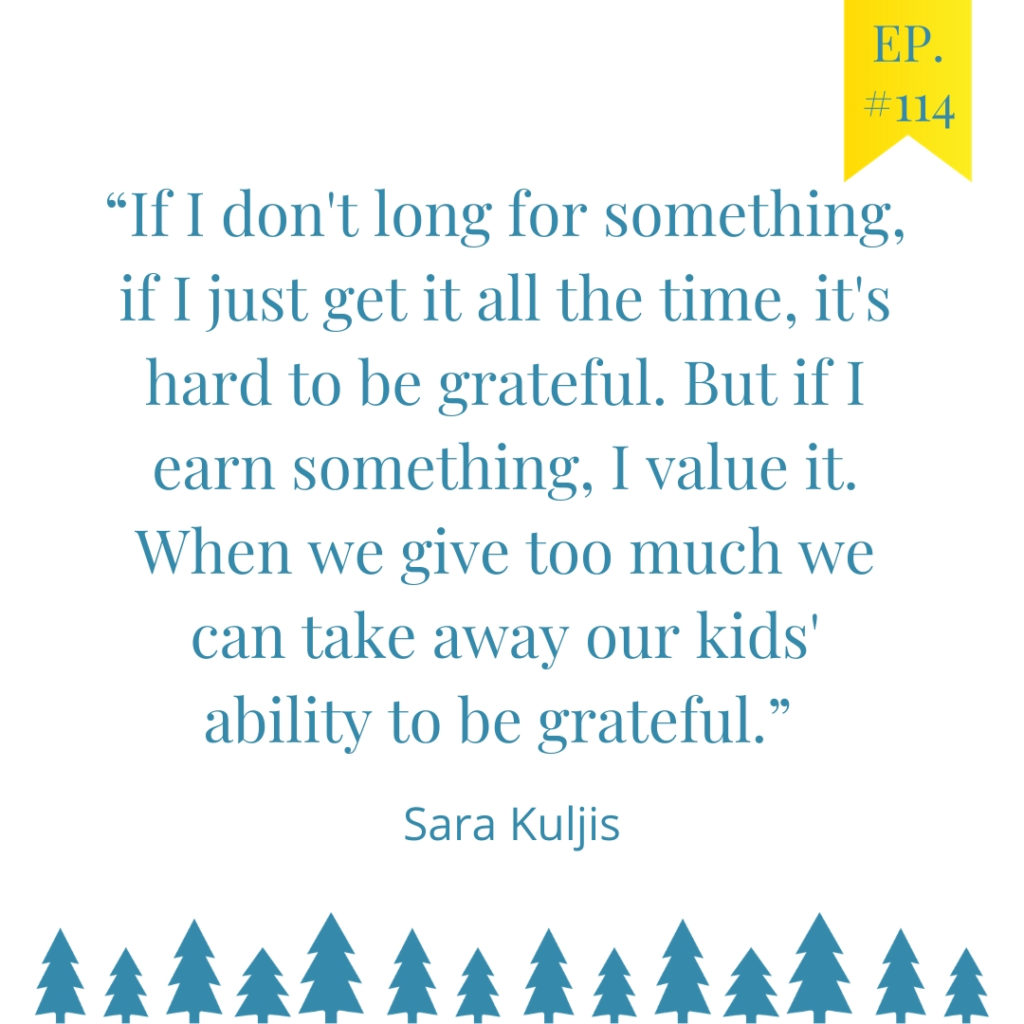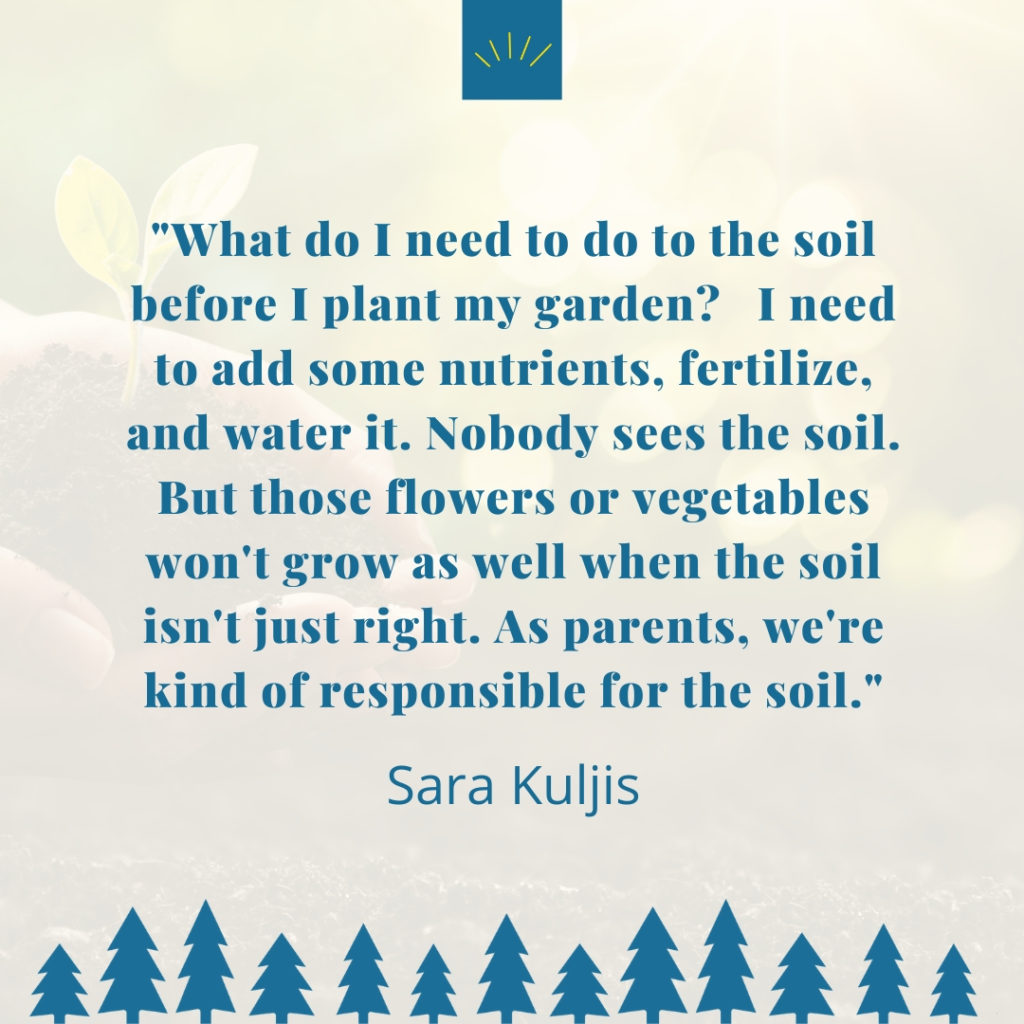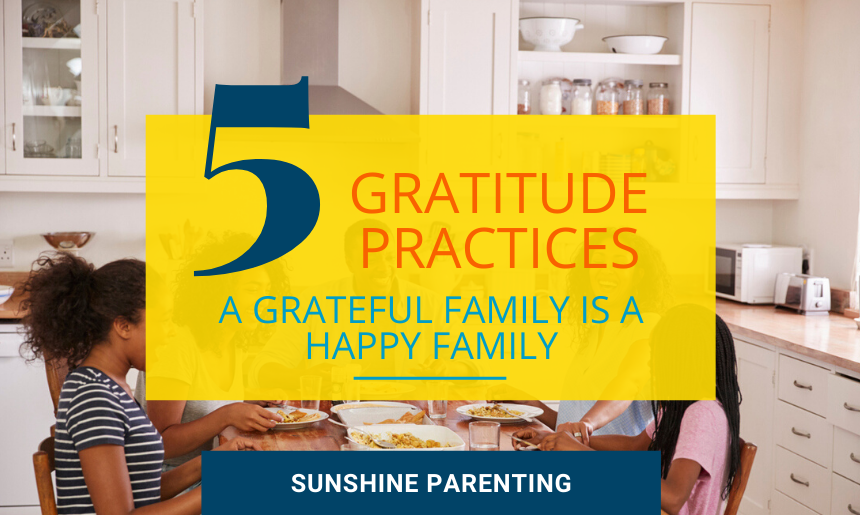
Click here to download the Episode!
What comes before gratitude in our children? In this episode, Sara and I discuss how we can prepare our kids to become grateful people. Sara and I talked about gratitude last year in this episode about Growing Gratitude.
Big Ideas
- As the Thanksgiving holiday nears, it is important to remember that we can cultivate a heart of gratitude all year long.
- Good manners are important but employing these “precursors” to gratitude can help instill our family values in a deeper and more meaningful way.
- Precursors to growing gratitude:
- Avoid over-giving, as it can lead to entitlement. When we earn what we have, we value it more.
- Cultivate empathy. When kids realize that there is a cost (money, time, energy or thought) associated with everything they have, they are more grateful.
- Model gratefulness. When kids hear their parents thanking each other, showing respect and demonstrating gratitude, they are more likely to adopt the same habit.
- Be exposed to seeing how most of the world lives or not always having daily comforts. A vacation from things like big meals and hot showers, such as in camping situations or while traveling, can help us to realize a greater appreciation for all we have.
Quotes
Audrey: “You can’t just start saying thank you or start doing gratitude practices and suddenly become this grateful person. There are precursors to gratitude.”
Sara: “When our kids are little, one of the first things we teach them is to say please and thank you. As my kids grew, I wanted their thank yous to come from inside them, not from me reminding them.”
Sara: “It’s my work to do as a parent to set these things up and to cultivate these habits in myself and in my home so that when it’s time for our kids to build the muscle of gratitude, it fits in. It’s kind of super-powered and more authentic.”
Audrey: “Practicing kindness and practicing gratitude is good because you build the muscle.”
Audrey: “The depth is what we’re talking about. It’s almost like a mindset, a way of thinking about things and remembering the impact of what we do.”
Sara: “As parents, we so long to meet (our kids’) needs well, but we also feel compelled to meet all their wants. By ‘needs’ I mean shelter, love, food, medical care, sleep, all the things we need to thrive. But then we get on this hamster wheel of, ‘well, they better have the newest iPhone, or best kind of tennis shoes, or the tutor everyone else is going to,’ and we can over-give. We can over-meet their wants to a place where they develop an entitlement.”

Sara: “We’ve really got to guard our choices. We’re developing grown-ups eventually who can work and earn something, who can long for something, who can have an appreciation because they had to wait or they had to grow into it.”
Audrey: “The expression ‘delayed gratification’ has ‘grateful’ in it.”
Audrey: “It’s just kind of balancing. Are we giving in a good way? Are we overdoing it? It’s the ‘over-giving’. It’s not to not-give to our kids, it’s to give in a way that we’re thinking through, is it the right amount?”

Audrey: “You have to do things. You have to gain competence to earn confidence. You can’t make someone confident. It has to take some time. It comes from learning that it’s okay to make mistakes, you’re not going to be good at everything the first, second, third, even 20th time.”
Sara: “When we help kids understand ‘what did it cost that other human to provide this to me,’ it naturally grows gratitude in them.”
Audrey: “Young kids are made to be self-focused. That’s normal developmentally. Anything we can do to get them out of their head helps. I do think empathy is such a key thing.”
Sara: “I think sometimes our kids hear us being critical of things or dissatisfied with things more often than they hear us being grateful. Make thanking each other, thanking your spouse for something that he or she did, a really normal thing.”
Sara: “If our kids never see us being grateful, how will they suddenly become grateful people?”
Audrey: “If you’re only living in the bubble of your neighbor, which likely is safe, or you’re own home, which likely has electricity and your kids have their own beds and running water, I think that we can get almost desensitized.”
Audrey: “We can just set our kids up, get that soil ready to really build their gratitude muscles.”
Sara: “Whenever we do something in the daily flow of life, it just becomes part of who we are as a family. Finding a habit or a ritual (not just around the Thanksgiving table–although that’s awesome!) where we get to name something that we’re grateful for, or practice thanking another person for something, done daily or weekly makes things stick.”
Audrey: “When we adults practice this ourselves it goes a long way in setting our kids up to be more grateful.”
Resources/Related Posts
A Grateful Family is a Happy Family: 5 Gratitude Practices

